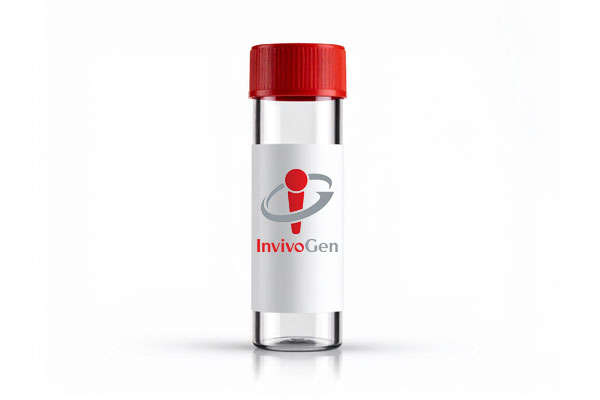
Anti-hCD20-mIgG1
-
Cat.code:
hcd20-mab9
- Documents
ABOUT
Murine IgG1 monoclonal antibody (mAb) against human CD20
Anti-hCD20-mIgG1 features the constant region of the mouse IgG1 isotype and the variable region of rituximab.
Rituximab is a mouse/human chimeric monoclonal antibody that targets the CD20 antigen found on the surface of malignant and normal B lymphocytes.
The binding of rituximab to CD20 results in cell destruction through different mechanisms including direct signaling of apoptosis, complement activation, and cell-mediated cytotoxicity.
Rituximab has been approved by the FDA to treat various lymphoid malignancies, including B-cell non-Hodgkin's lymphoma and B-cell chronic lymphocytic leukemia.
Anti-hCD20-mIgG1 was generated by recombinant DNA technology. It has been produced in Chinese hamster ovary (CHO) cells and purified by affinity chromatography with protein G.
More isotypes of this antibody are available and can be used for comparison of biological activities such as ADCC (see below or in the 'upon request' section). InvivoGen also provides type I and type II anti-hCD20 mAbs featuring the variable regions of Ofatumumab or Obinutuzumab, with either native or engineered Fc regions.
All products are for research use only, and not for human or veterinary use.
SPECIFICATIONS
Specifications
CD20
Human
Flow cytometry, ADCC
0.2 µm filtered solution in 68 mM sodium phosphate buffer (pH 7.4) with 91 mM glycine, 5% w/v saccharose, and stabilizing agents
0.2 µm filtration
Flow cytometry, ADCC
Binding of Anti-hCD20-hIgG1 to human CD20 tested using flow cytometry, Complete sequence verified, Absence of bacterial contamination (e.g. lipoproteins and endotoxins) confirmed using HEK-Blue™ TLR2 and HEK-Blue™ TLR4 cells
CONTENTS
Contents
-
Product:Anti-hCD20-mIgG1
-
Cat code:hcd20-mab9
-
Quantity:100 µg
Shipping & Storage
- Shipping method: Room temperature
- -20°C
- Avoid repeated freeze-thaw cycles
Storage:
Caution:
DOCUMENTS
Documents
Technical Data Sheet
Safety Data Sheet
Certificate of analysis
Need a CoA ?
